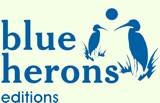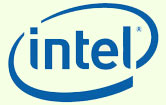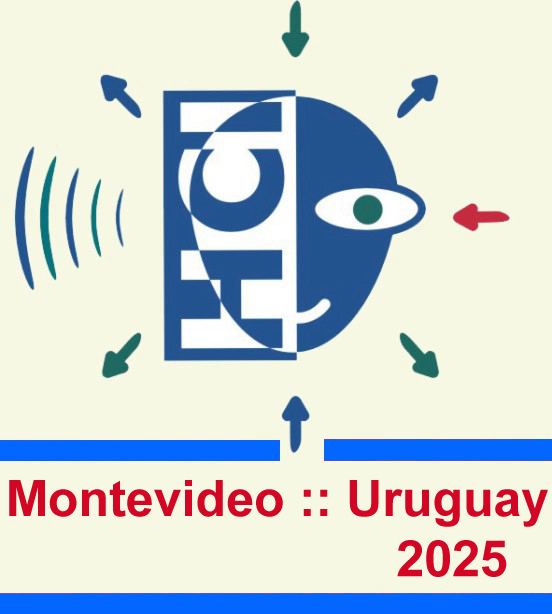
Fourteenth International Conference on
Advances in New Technologies, Interactive Interfaces and Communicability
( ADNTIIC 2025 )
:: Montevideo – Uruguay ::
November 18 – 20, 2025
| Home |
| Topics |
| Important Dates |
| Paper Submission |
| Organization |
| Program |
| Registration |
| Publications |
::. BBK .::
Birkbeck University of London
UK
::. CNR .::
National Research Council
Italy
::. FUN .::
Future University Hakodate
Japan
::. IIMROHTAK .::
Indian Institute of Management Rohtak
India
::. ITB .::
Institute of Technology Bandung
Indonesia
::. KETTERING .::
Kettering University
USA
::. KNU .::
Kainan University
Taiwan
::. LEEDS .::
University of Leeds
UK
::. MCU .::
Ming Chuan University
Taiwan
::. METU .::
Middle East Technical University
Turkey
::. MJU .::
Myongji University
South Korea
::. MSU .::
Moscow State University
Russia
::. NUU .::
National United University
Taiwan
::. NYC .::
New York University
USA
::. POLITO .::
Polytechnic University of Turin
Italy
::. POLSL .::
Politechnika Slaska University
Poland
::. PURDUE .::
Purdue University
USA
::. TSINGHUA .::
Tsinghua University
China
::. U-AIZU .::
University of Aizu
Japan
::. UAI .::
Interamerican Open University
Argentina
::. UBA .::
University of Buenos Aires
Argentina
::. UC .::
University of Cincinnati
USA
::. UCC .::
University College Cork
Ireland
::. UCM .::
Complutense University
Spain
::. UCOL .::
University of Colima
Mexico
::. UCR .::
Universidad de Costa Rica
Costa Rica
::. UHK .::
University of Hong Kong
China
::. UIOWA .::
University of Iowa
USA
::. ULB .::
Free University of Brussels
Belgium
::. UM .::
University of Malta
Malta
::. UNC .::
National University of Córdoba
Argentina
::. UNIGE .::
University of Genoa
Italy
::. UNILJ .::
University of Ljubljana
Slovenia
::. UNIST .::
University of Split
Croatia
::. UNIVE .::
Ca' Foscari University of Venice
Italy
::. UofO .::
University of Ottawa
Canada
::. UOI .::
University of Ioannina
Greece
::. UPR .::
University of Puerto Rico
Puerto Rico
::. US .::
University of Sevilla
Spain
::. USC .::
University of Southern California
USA
::. UWI .::
University of the West Indies
Jamaica
::. WASEDA .::
Waseda University
Japan
::. WSU .::
Wayne State University
USA
HOME |
|
Introduction and Topics, Deadlines and Program Committee 1. Introduction and Topics The user interface is the environment par excellence where the latest breakthroughs in the factual, formal and natural sciences converge. In the design of the current and future interactive systems, the presentation of the content on the screen is the key to the success of the rest of the components which make up an avant-garde computer science structure. The year 2010 opens an interesting decade in which to consolidate communicability, especially with the constant (r)evolution of the interfaces of the interactive systems and the quantic-nanotechnological-self-sufficient era. Right now we are starting to see the first results of the intersection of scientific knowledge to increase the quality of telecommunications in the daily life of millions of users. However, the interactive systems will keep on programming from the point of view of design of the interfaces, using the last advances in the software and the constant progress of the hardware. A democratization of the future models in human-computer interaction and communicability will ease the interaction in the environments of immersive multimedia systems –with or without extended reality in 3D, oriented towards education, health, work and leisure time. Actually, the expansion of the intelligence artificial / automation with mobile and/or static interactive systems makes us reflect and work daily to meet the needs of the societies to which we belong, and hypothetically tend to improve the quality of life of each one of its members. In this environment the new technologies can and must be within reach of everyone. A state of the art will be the starting point of the works until reaching the future technological tendencies born from the interaction between the human being, the constant technological (r)evolution and the environment. This is a place where the intersection of knowledge deriving from the factual, formal and natural sciences can enrich in a masterful way each one of the research projects presented and related to the last generation interactive / intelligent systems. The (r)evolution of the net must allow the human being to take a steady flight towards new horizons where the technological breakthroughs are shared by the base of the pyramid –the general public, in the least possible time. Important steps have been taken in that direction in the last years thanks to the democratization of telecommunications and Internet. However, the costs stemming from the free access to digital information and/or the legislations in force, prevent even today that flight in many societies to millions of potential users of classical mobile multimedia, intelligent interactive systems, robots, and so on. In the current scientific environment we intend to build a bridge of solutions to eradicate problems, suggesting innovating solutions and future guidelines of action thanks to the lessons learned with the research works we have made or that are currently in progress. Many conferences are focused on specific aspects of computer science, artificial intelligence, computer vision, information retrieval, recommender systems, data science, education, social computing, human behavior, ethics in ICTs, STEAM, user-centered design, embodied interaction, children-computer interaction, empathic conversational interaction, virtual assistants, computer-supported cooperative work, etc., and bring together leading experts in a particular field or sometimes on a specific technology. At such large conferences students are often marginalized or relegated to poster sessions or similar, with only 5 – 10 minutes for the presentations, for example. The conferences, workshops, symposiums, courses, and so on, are not a big scale (thousands) and aim to promote dialogue between established professors and graduate students working on new directions. Besides, we work with zero “G” Factor (G = Garduña / Gardunia). Hence topics from the whole range of software engineering, educational quality, communicability, human-computer interaction, mobile multimedia, extended reality, interactive design, innovative coding tools for developers, social impact of AI, new frontiers in human/robotics interfaces, and so forth, are welcomed. Last year’s symposiums, workshops, conferences, and so on, organized by ALAIPO and AInCI, for instance, included research works on the topics (see below the alphabetical order). An extensive listing connotes and reflects the requirement and also skill necessary to find intersection zones of the disciplines among the different domains, fields, and specialties, which at the same time potentially boosts and merges the formerly different scientific views (see below the main areas). All contributions –papers, workshops, demos, research-in-progress, posters, doctoral consortium, etc., should be of high quality, originality, clarity, and significance. In the current international conference it is demonstrated how with a correct integration among professionals of factual, formal and natural sciences interesting research lines in the following subjects "Advances in New Technologies, Interactive Interfaces and Communicability: Design, e-Commerce, e-Learning, e-Health, e-Tourism, and Web Evolution" and other computational main areas are solicited on, but not limited to (alphabetical order): :: Communicability and Design • Aesthetic and Creative Design :: E-commerce • Benchmarking :: E-learning • Collaborative Learning :: E-health • Bioengineering :: E-tourism • Augmented / Mixed / Virtual Reality for New Media Art :: Interactive Interfaces • Advances in Human-Computer Interface :: Digital Information and New Media • Architecture Documentation :: Software and Systems Engineering • Heuristic Assessment: Innovative Methods, Techniques and Tools • Big Data
This is an international conference “100% in-person.” Best regards, Francisco V. Cipolla Ficarra (Chair - coordinator) ALAIPO: Asociación Latina Interacción Persona-Ordenador –Latin Association of HCI (www.alaipo.com) and AINCI: Asociación Internacional de la Comunicación Interactiva –International Association of Interactive Communication (www.ainci.com). Address: Via Tabajani, S. 15 (7) - 24121 (Bergamo) Italy :: c/ Angel Baixeras, 5 - AP 1638 - 08080 (Barcelona), Spain. Email: info@alaipo.com :: info@ainci.com P.S. If you wish to be removed from this mailing list, please send an email to info@ainci.com or info@alaipo.com with remove in the subject line. Thanks.
2. The events have the following deadlines :: Works submissions: Closed. Consequently, as they are received, they will be evaluated. It is a way to speed up the process to make up the final program of the international conference, visa requirements, should plan travel well in advance, etc. In other words, it is not necessary to wait until the deadline to send them for the evaluation process. :: Deadlines Works Submissions: October, 31th – local time in Hawaiian Islands (Closed) :: Conference: November, 18 –20
3. Program Committee: :: Francisco V. Cipolla Ficarra (chair - coordinator) Demo Session, Poster Session, Workshop Session, Parallel Session, Research in Progress, Courses and Doctoral Consortium: Alejandra Quiroga. University of Sidney (Australia); José Hamkalo. University of Buenos Aires (Argentina); Laurence Bender. National University of 3 de Febrero (Argentina); Sebastián Gabo. National University of Córdoba (Argentina); Silvia Poncio. Interamerican Open University (Argentina), and Miguel C. Ficarra (Spain & Italy) Honorary Committee: :: Héctor Montes. Universidad Nacional de Cuyo (Argentina) Scientific, Steering and Technical Committees: :: Alan Radley. Perspective Research Centre and University College London (UK) |
|
| © 1997 - 2025 AINCI & HCI Lab | ||||
|---|---|---|---|---|































